Letter from Africa: Will Emir Lamido Sanusi ruffle feathers?
- Published
- comments
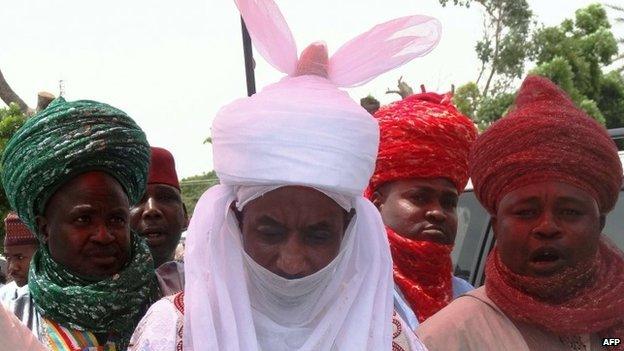
Lamido Sanusi (C) has become one of Nigeria's most powerful Muslim leaders
In our series of letters from African journalists, Mannir Dan Ali considers whether the newly appointed emir of Kano will be as dynamic in his new role as he was as Nigeria's central bank governor.
Lamido Sanusi, Nigeria's controversial former bank chief, has achieved a life-long ambition.
It might have been a surprise to some that he was chosen as emir, a post which carries enormous weight among Muslims from Nigeria's Hausa-Fulani community, ahead of his predecessor's eldest son, Lamido Ado Bayero, but he has never hidden the fact that he wished to become the traditional leader of Kano, one of the most historic and colourful cities of West Africa.
'Modernising approach'
His grandfather, Muhammad Sanusi, was on the throne until he was deposed in 1963, and the new ruler - now known as Muhammad Sanusi II - sees this as his calling. He appears to believe that the subtle power and influence of the position could be used for the public good.
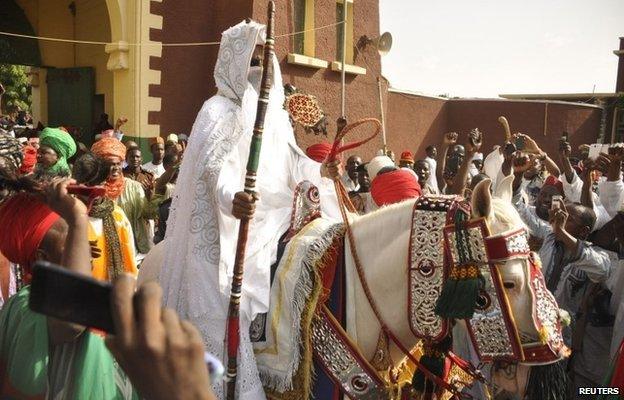
Mr Sanusi is a fierce critic of the militant group Boko Haram
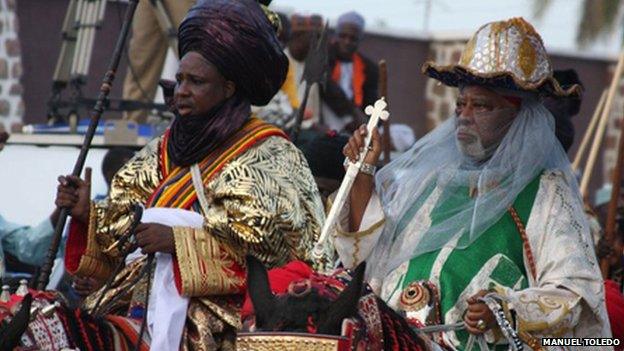
The former emir (R) died after a long illness
In the mid-1990s he quit a well-paid job as banking risk manager to deepen his knowledge of Arabic and Islamic studies by going to study in Sudan.
But he is a man who never shies away from controversy and after the end of military rule in Nigeria in 1999 he opposed the adoption of Islamic law in some northern states.
He argued in newspaper articles that there were more pressing issues that needed to be dealt with.

Who is Muhammad Sanusi II?
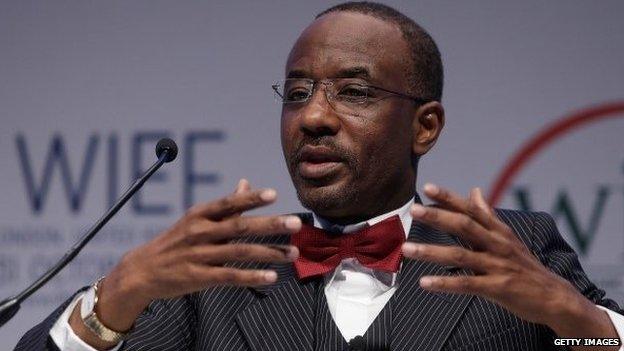
Born into the Fulani royal family on 31 July 1961
Grandson of a deposed emir, Muhammad Sanusi
Holds degrees in economics and Islamic studies
Appointed Nigeria's central bank governor in June 2009
Named 2010 central bank governor of the year by Banker magazine
Suspended in February 2014 after fall-out with president
Crowned 14th emir of Kano on 8 June 2014
Changes name from Lamido Sanusi to Muhammad Sanusi II

His opposition to Sharia put him on a collision course with many conservative Muslims in the north - and his modernising approach is anathema to Boko Haram, which says it is fighting to create a strict Islamic state and opposes all Western values.
The militants had already tried to assassinate his predecessor, Al Haji Ado Bayero, who died last month at the age of 83 after a long illness. Many are waiting to see what the new emir's line on the insurgency will be.
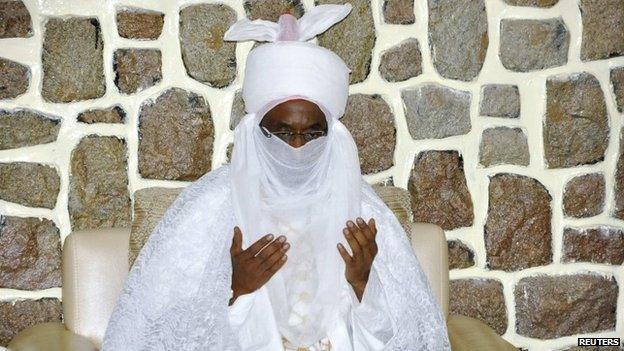
The emir's mouth is covered to signal that he speaks through his aides
One of the hurdles Mr Sanusi, 53, now faces in speaking his mind is literally the robes that he wears.
When the royal court of Kano is in session, part of the emir's elaborate turban covers his mouth so that courtiers speak on his behalf.
On the few occasions the emir speaks, it is expected to be in measured tones and bereft of controversy - two qualities the former banker is not famous for.

The emir's role
Absolute power before British colonial rule
Became part of colonial administration
Few constitutional powers since independence
Seen as custodians of religion and tradition
Revered in the mainly Muslim north
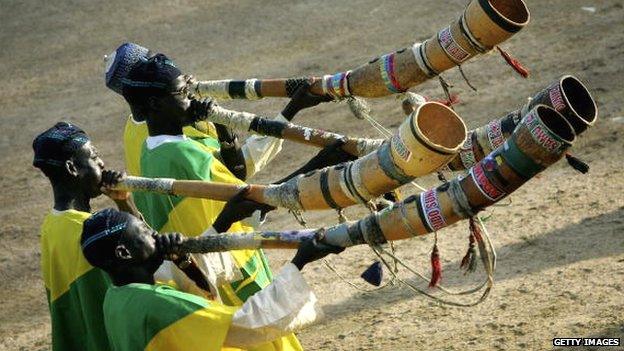
The annual durbar celebration honours the power and heritage of the Hausa-Fulani community

However, unlike his predecessor, he has started giving the weekly Friday sermon at the main mosque in Kano - which may be a way he will make his views known.
It is unclear though if that will be enough to capitalise on his reforming zeal and forthright nature in his new role.
As someone who does not shy away from pointing to the elephant in the room, Emir Sanusi is more likely to use his influence to address challenges like Boko Haram's insurgency, unemployment and poor school enrolment by leveraging his position with Nigeria's political leaders and ordinary people who are sometimes suspicious of the government's intentions.
The role of the emir is that of peacemaker and politics is something that he traditionally stays clear of.

Mr Sanusi's supporters came out to see him in his Rolls-Royce following his appointment
The governing People's Democratic Party (PDP), however, has been affronted by his appointment and in what seemed like a comedy of errors tried to congratulate another candidate on the appointment before the Kano state governor, Rabiu Musa Kwankwaso, announced his choice.
President Goodluck Jonathan, who suspended Mr Sanusi in February as bank governor, has yet to congratulate him.
The former bank chief's whistle-blowing over $20bn (£12bn) allegedly missing from the state oil company still rankles and Mr Sanusi is currently challenging his suspension in court.
There are indications that in order to smooth relations with the federal authorities he may discontinue his legal challenge.
But with the calculation that no politician can win a presidential election without achieving a certain number of votes in Kano, one of Nigeria's two most populous states, Mr Jonathan may well have to doff his hat before long to his foe at the palace in order to show voters he respects their ways and traditions.
If you would like to comment on Mannir Dan Ali's column, please do so below.